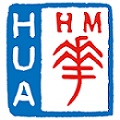- MSD collaboration to investigate QBiotics’ lead molecule tigilanol tiglate in combination with KEYTRUDA(R) (pembrolizumab)
- Tigilanol tiglate is a novel, small molecule being developed as an intratumoural treatment for solid tumours
- Melanoma the second human application for tigilanol tiglate following Company’s ongoing Phase I/II study in head and neck squamous cell carcinoma
QBiotics Group Limited (QGL), a life sciences company developing novel anticancer and wound healing pharmaceuticals, is pleased to announce that it has entered into an agreement with MSD (tradename of Merck & Co., Inc., Kenilworth, NJ, USA), to evaluate use of its lead molecule tigilanol tiglate, in combination with Keytruda(R) (pembrolizumab) in patients with unresectable melanoma.
Dr Victoria Gordon, Managing Director and CEO of QBiotics, said, “We are delighted to announce this collaboration with MSD. Patients with unresectable melanoma who have received prior checkpoint inhibitors currently have limited effective treatment options. Through this program we hope to see that when combined, tigilanol tiglate and Keytruda may produce additive anti-tumour immune responses, and improve outcomes for patients.”
The Phase I/II open label ‘QBC46-H06’ study is a dose escalation and expansion study with the primary objective of determining the maximum tolerated dose or maximum feasible dose of the combination therapy. Secondary measures include assessing tumour responses in both injected tumours and uninjected tumours, as well as clinical efficacy parameters. Patients with unresectable melanoma and who have had exposure to immune checkpoint inhibitors are eligible for the study.
Dr Gordon continued, “This study follows on from encouraging Phase I data where tigilanol tiglate as a monotherapy showed a 27% treatment response rate*, including an 18% complete response with full tumour destruction across a wide variety of solid tumour types(2). Two patients with melanoma that had complete responses also had an abscopal (anenestic) response. Melanoma is the second human application we are pursuing for tigilanol tiglate following on from our Phase I/II clinical trial in patients with Head and Neck Squamous Cell Carcinoma (HNSCC) which commenced in December 2019”.
Tigilanol tiglate is a small molecule administered by intratumoural injection directly into the solid tumour mass. Once injected, it has a multi-modal action including (i) rapid, but highly localised, inflammatory responses, (ii) increased permeability and destruction of tumour vascular endothelium, and (iii) rapid tumour cell death by oncosis(1).
*27% treatment response rate (n=6); 18% complete response rate (n=4)2.
Issued by QBiotics Group Limited – www.qbiotics.com
For further information
Dr Victoria Gordon, CEO & Managing Director, QBiotics Group
victoria.gordon@qbiotics.com or + 61 418 453 737
For media enquiries
Jane Lowe, IR Department
jane.lowe@irdepartment.com.au or +61 411 117 774
About QBiotics
QBiotics is a public unlisted Australian life sciences company which discovers, develops and commercialises novel anticancer and wound healing products for human and veterinary markets. Its lead product, tigilanol tiglate, is an anticancer pharmaceutical targeting a range of solid tumours across multiple species. QBiotics’ business model is to develop products that have application in both veterinary and human markets. Success in the veterinary programs validates QBiotics technology and de-risks human development, while generating early, non-diluting revenues. https://qbiotics.com
About Tigilanol tiglate
Tigilanol tiglate is a small molecule that is being tested as an intratumoural treatment for solid tumours. Its effect on tumours is multimodal and involves injected tumour responses as well as distal responses in non-injected tumours. Complete destruction of the injected tumour is mediated via tumour vascular disruption as well as death of tumour cells by oncosis1. Following tumour destruction, rapid wound healing has been shown to ensue.
A single injection of tigilanol tiglate has been shown in canine patients to ablate (completely destroy) 75% of treated tumours(3). Veterinary use of tigilanol tiglate (branded STELFONTA(R)) has received marketing authorisation by the European Medicines Authority and the Veterinary Medicines Directorate in the United Kingdom as a treatment for canine mast cell tumours. STELFONTA(R) is also under review by the US Food and Drug Administration – Center for Veterinary Medicine and the Australian Pesticides and Veterinary Medicines Authority. STELFONTA(R) is partnered with Virbac, a global animal health company and launched in Europe in April 2020.
References
1. Boyle et al., (2014) Intra-tumoural injection of the novel PKC activator EBC-46 rapidly ablates tumours in mouse models. PLoS One 9:e1068887. DOI: 10.1371/journal.pone.0108887.
2. Panizza et al., (2019) Phase I dose-escalation study to determine the safety, tolerability, preliminary efficacy and pharmacokinetics of an intra tumoural injection of tigilanol tiglate (EBC-46). EBioMedicine 50: 433-441.
3. De Ridder et al., (2020). Randomized controlled clinical study evaluating the efficacy and safety of intratumoral treatment of canine mast cell tumors with tigilanol tiglate (EBC-46). Journal of Veterinary Internal Medicine. 1-15. DOI: 10.1111/jvim.15806














